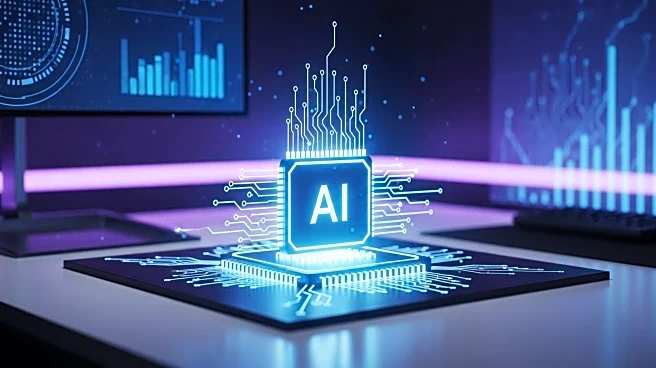What's Happening?
Walmart CEO Doug McMillon has stated that artificial intelligence (AI) is set to transform every job within the company, which is the largest private employer in the United States. McMillon emphasized that AI will impact all roles, from white-collar office jobs to positions in stores and warehouses. As part of this transition, Walmart plans to freeze its global headcount of 2.1 million workers over the next three years, while still anticipating revenue growth driven by AI technology adoption. The company is integrating AI tools such as chatbots to enhance customer service and supply chain management.
Why It's Important?
The integration of AI into Walmart's operations signifies a major shift in the retail industry, potentially setting a precedent for other large employers. This move could lead to significant changes in workforce dynamics, with a focus on efficiency and automation. While AI promises to streamline operations and boost revenue, it also raises concerns about job security and the need for employees to adapt to new technologies. The emphasis on AI highlights the growing importance of digital skills in the workforce, as companies seek to balance technological advancements with human expertise.
What's Next?
Walmart's strategy to incorporate AI will likely prompt other major retailers to evaluate their own AI integration plans. As AI tools become more prevalent, there may be increased demand for training programs to help employees adapt to new technologies. Additionally, the impact of AI on job roles and employment levels will be closely monitored by industry analysts and policymakers. The company's approach could influence future labor market trends and regulatory discussions surrounding AI and automation in the workplace.











